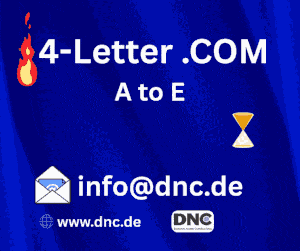Acorn Newsbot
Junior Member
- Joined
- Jan 28, 2006
- Posts
- 23,354
- Reaction score
- 164
 How long have you worked as a mediator in Nominet’s DRS?
How long have you worked as a mediator in Nominet’s DRS?I’ve been at Nominet since February 1999 and worked in various customer service roles before joining the Dispute Resolution Service (DRS) team in 2007. I gained my CEDR accreditation as a mediator later that same year and have now been involved in many, many mediations – I think I stopped counting after the 1,500 mark.
What does it mean to be a mediator?
Mediation is a neutral person stepping into a dispute not to make a judgement, but to help the people involved to talk about ways that the problem can be solved, and then facilitate that solution. The World Wide Web is, as the name suggests, worldwide. The parties in a domain dispute may be thousands of miles apart geographically so it’s not realistic to facilitate face-to-face meetings; our mediations are conducted over the telephone, video call or email.
What do you enjoy about being a mediator?
The variety. While all DRS cases involve a domain name registration, the reason for the dispute could be absolutely anything. Sometimes mediations involve fairly standard commercial negotiations, while in other cases the parties could be former friends (or more), family or former business partners, and so more interpersonal skills are needed from the mediator. The power to resolve a dispute in mediation lies completely with the parties, but there is great job satisfaction to be found in helping people solve their differences.
What can be the biggest challenge?
One of the challenges is helping people to come to terms with the fact that mediation is genuinely confidential and without prejudice. People will sometimes hold back vital information, which doesn’t help. It’s a much easier process if we know all the facts and feelings from the outset.
What are the frustrations?
One frustration of being a mediator is facing a complaint or a response that hasn’t been properly researched. Anyone engaging in the DRS should always do their background reading first. There is lots of useful advice on our website and our Customer Service team are on hand to explain people’s options.
What have been the most noteworthy cases over the years?
I could tell many stories about the fascinating disputes I have witnessed but I won’t – confidentiality is a cornerstone of mediation. We do see some extremely creative agreements though, such as domain names exchanged for an apology, an autograph, a musical instrument or tickets to a sporting event.
How has the type and/or volume of DRS cases changed over the years?
As the size of the .UK register continues to grow, the number of disputes has stayed relatively stable. We’d expect to see between 600 and 800 DRS complaints made each year, or one DRS complaint for every 1,200 domain names registered.
What has surprised you about being a mediator for the DRS?
How political or sporting events – or even popular reality TV shows – can result in certain patterns of domain names being registered. This can be by fans, critics or people hoping they can ‘cash in’ on the domain name or use it to promote their own business. Often at the point of registration you can see which domain names are likely to turn into a dispute.
What other work do you do at Nominet in addition to mediation?
I am a Customer Resolution Advisor. The role incorporates an incredibly wide range of tasks, from technical DNS support to working with law enforcement agencies to battle cyber-crime such as phishing or fraud. If a person has a question about the domain name system or a particular registration – and it’s complicated or emotionally charged – there’s a fair chance it will end up with the Customer Resolution Team.
What makes a good mediator?
You need to know what questions to ask, how to ask them, and when to ask them. You need to know when to be firm and when to step back. To be able to help people resolve their dispute, they need to trust me and my impartiality. Rapport building, listening skills and questioning skills are all important to help foster that sense of trust.
What hobbies do you have outside work?
My family are my biggest hobby! I also enjoy sport (watching football and playing badminton) and am gaining something of a reputation as a shark in my local pub quiz. I dream of discovering a new species of dinosaur, too.
What tech innovation are you most excited about having?
I have a degree in Environmental Science and I grew up very close to the coal-powered Didcot Power Station. Now, the absolute highlight of my year is an annual family holiday to Cornwall where we can see the wind turbines and solar panels. I’m very aware of power sources, energy and the environment, so I’m keen to hear if there are more green/sustainable power sources that can be as effective – and less visible? Other than that, a recent sporting injury has resulted in me having an unusual interest in emerging bionic finger technology…
Did you know that Nominet’s DRS dealt with complaints about 763 .UK domains in 2018, just 0.0063% of all the domain names on the register? Find out more stats about a year for the DRS in our press release.
The post DRS Q&A: Meet the mediators appeared first on Nominet.
Continue reading...



















